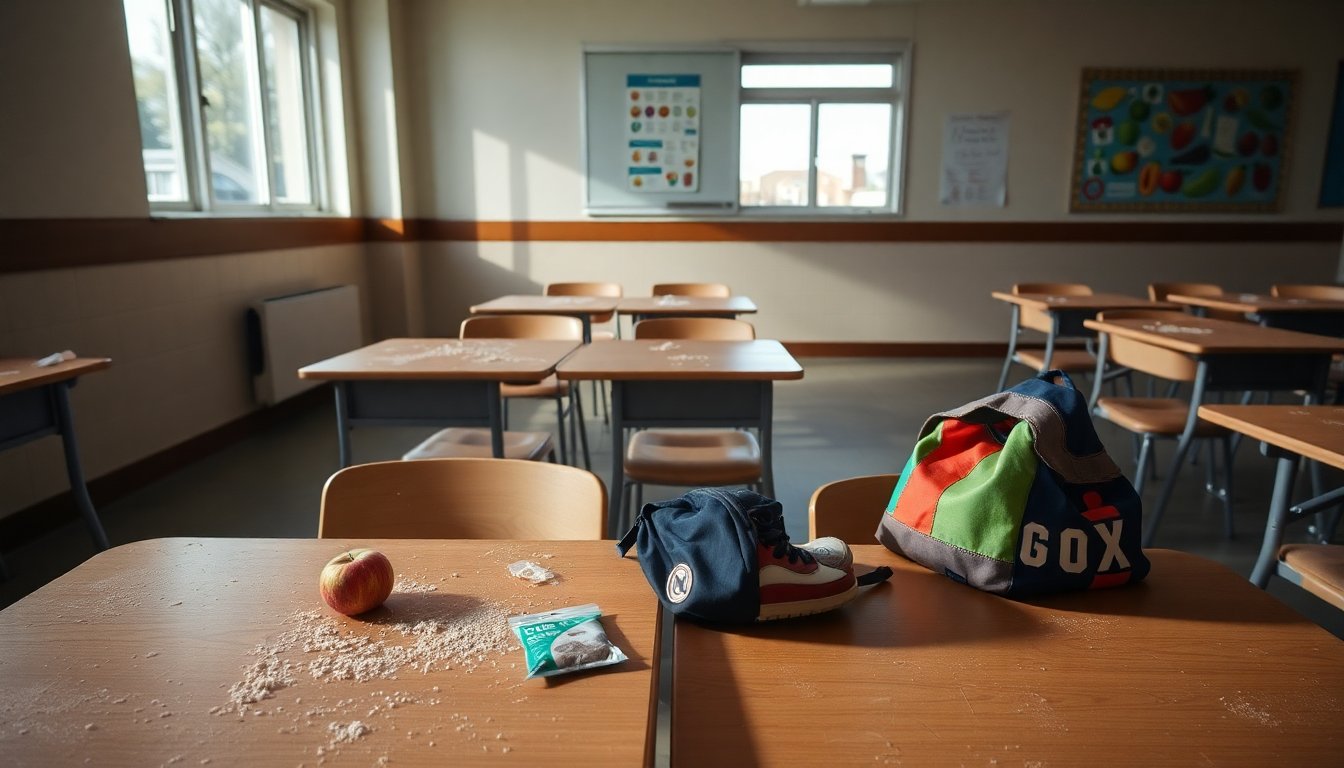Table of Contents
The teachers’ strike in Alberta has now reached its eighth day, significantly impacting the province’s children. Non-profit organizations are raising alarms as numerous families face dire situations, with many students losing access to essential school food programs. Approximately 740,000 students are affected and 2,500 schools remain closed, highlighting the urgent need for intervention.
Impact of the strike on families
As the strike persists, accounts of struggling families come to light. Jared Jorstad, a representative from Hope Mission, recounted a touching story about a mother who had gone several days without food, prioritizing her children’s needs during this difficult period. This family represents many others grappling with the stark reality of food insecurity as the school meal programs they depended on are no longer available.
The closure of school cafeterias has resulted in many children lacking access to essential meals, often their primary source of nutrition. Jorstad emphasizes that for families living on fixed incomes, these programs are not merely helpful but essential for their children’s well-being and development.
Non-profits stepping up to provide support
In response to this crisis, organizations like Hope Mission are taking action to assist those affected. Partnering with several Catholic schools in Edmonton, they have established a system where support staff distribute paper bag lunches to students in need. Jorstad notes that approximately 200 to 250 students have benefited from these meals each day since the strike began.
In Red Deer, The Mustard Seed is facing a significant reduction in their meal services. Previously, the organization provided between 600 and 800 lunches daily. However, this number has plummeted to approximately 15 meals per day. Spokeswoman Laura Giesbrecht expressed deep concern over the plight of children who may be going without food, emphasizing the urgency of the situation.
Concerns regarding student nutrition
Nutrition plays a vital role in children’s development. Giesbrecht underscores the alarming consequences of the current crisis. For many students, the meals offered at school represent their only substantial food for the day. The possibility of children going hungry is a distressing reality. Giesbrecht is actively seeking to raise awareness about the ongoing availability of meals through collaborations with local organizations.
A recent collaboration between the local YMCA and The Mustard Seed aims to provide nutritious meals for children participating in their programs. According to Giesbrecht, proper nutrition is essential for cognitive function, social interactions, and overall well-being. She noted, “We all know what it feels like to be hangry,” highlighting the significance of adequate nourishment.
The broader context of the strike
The ongoing strike involving members of the Alberta Teachers’ Association marks the largest of its kind in the province’s history. Central to the dispute are pressing issues such as teacher salaries, overcrowded classrooms, and the necessity for support for students with complex needs. The government’s previous offer, which included a 12% pay raise over four years and a pledge to hire 3,000 new teachers, was decisively rejected by educators.
As the situation remains unresolved, organizations like Breakfast Club of Canada are closely monitoring developments. This organization typically supports nearly 40,000 students across 300 schools in Alberta; however, all their breakfast programs are currently suspended due to the strike. Program lead Ryan Baker expressed hope for a swift resolution, emphasizing that the social stigma surrounding school meals often diminishes when children can share meals with their peers.
The path forward
The ongoing teachers’ strike highlights a critical issue regarding child nutrition and food security in Alberta. As non-profit organizations mobilize to provide support, there is a collective hope for a prompt resolution that will enable schools to reopen and meal programs to resume. In the interim, the community’s commitment to ensuring that children do not experience hunger is more essential than ever.
Collaboration and awareness are essential in reducing the strike’s impact on vulnerable families. This situation highlights the crucial role schools play, not only in education but also in supporting the health and well-being of students. By working together, we can ensure that no child faces hunger.


